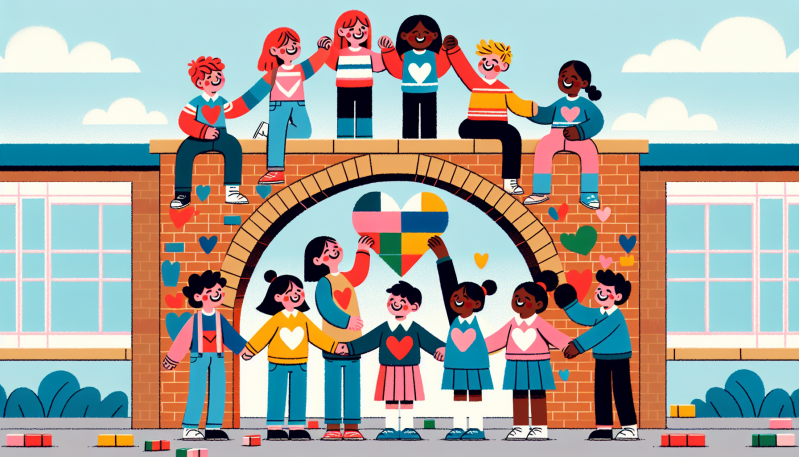In the vibrant hallways of our schools, we encounter a colorful tapestry of emotions, interactions, and learning experiences that shape the lives of our children. As a devoted pediatric occupational therapist, I’ve witnessed firsthand the subtle yet profound influence that self-care among parents and educators can exert on the delicate fabric of a child’s social and emotional development. As such, self-care is not merely a respite for the weary; it is a vital conduit through which kindness, empathy, and inclusivity flow from adults to children, weaving patterns of understanding and resilience in our future generations.
### Self-Care: A Feasible Necessity in Busy Lives
Parents and educators often juggle numerous responsibilities, making it seem like there’s no time left for self-care. However, self-care is essential to maintain balance and well-being, and even the smallest practices can create significant outcomes. Start with brief mindfulness exercises in the morning, engage in regular physical activity, or simply carve out moments for quiet reflection throughout the day. These practices do not require large chunks of time; rather, they can be seamlessly integrated into daily routines, such as during a commute or after putting the children to bed.
### A Beacon for Emotional Coping and Friendship
The act of prioritizing self-care significantly impacts a child’s capacity to navigate the complexities of emotions and relationships. Children often mirror the self-regulation and coping strategies of the adults in their lives. When parents and educators exhibit healthy self-care habits, they model vital skills children need to manage loneliness and cultivate authentic friendships. Open conversations about feelings, coupled with adults’ examples of self-care, empower children to seek support and engage in positive social interactions.
### The Pillars of DEI Through Self-Care
The commitment to self-care can also be a powerful lever for advancing Diversity, Equity, and Inclusion (DEI) within our schools. By caring for themselves, educators and parents are better equipped to foster an accepting and compassionate environment. It allows them to approach each child’s unique cultural, linguistic, and individual needs with patience and understanding, essentially reinforcing the principles of DEI in the learning community.
### Strategies for Sustainable Self-Care
There are numerous strategies that can be adopted by busy parents and school staff. Simple acts such as maintaining a gratitude journal, engaging in team sports or hobby clubs, and scheduling regular social interactions with peers can replenish one’s emotional and physical energy reserves. Workshops on time management, stress-reduction techniques, and professional development opportunities can be organized for school staff to reinforce the importance of self-care.
### Weaving Self-Care into the School’s Curriculum
Incorporating self-care strategies into the school curriculum can be a game-changer for students. Initiatives like ‘mindful Mondays’ can introduce students to mindfulness practices. ‘Fitness Fridays’ could encourage physical wellness, and art or music classes can serve as creative outlets for emotional expression. By embedding these practices into the school culture, we teach children lifelong skills to support their holistic development.
In conclusion, as we navigate the multifaceted role of shaping young minds, we must remember that the ripple of self-care extends far beyond the individual. It touches the lives of the children we nurture, fostering a fertile ground for social and emotional growth. The commitment to self-care is, therefore, a commitment to the next generation—a promise to cultivate a world brimming with kindness, understanding, and empowered individuals ready to embrace their diverse society with open arms and hearts.


